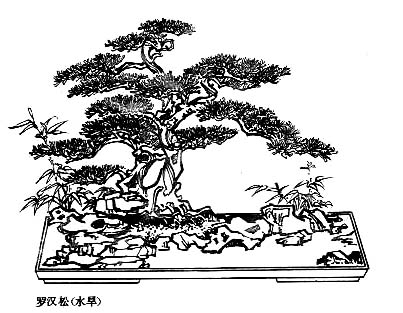論
語
Lun Yu 
 – Les Entretiens de Confucius
– Les Entretiens de Confucius
Le Maître échange propos, anecdotes, brèves paraboles et maximes avec ses disciples. Tr. Couvreur (fr), Legge (en) et Lau (en).
Lunyu III. 21. (61)
Ngai, prince de Lou, ayant interrogé Tsai Ngo au sujet des autels élevés en l'honneur de la Terre, Tsai Ngo répondit : « Les Hia y plantaient des pins, et les [Chang]-In, des cyprès. Les Tcheou y plantent des châtaigniers1, afin d'inspirer au peuple la crainte et la terreur. »
Le Maître entendant ces paroles dit : « Rien ne sert de parler des choses qui sont déjà accomplies, ni de faire des remontrances sur celles qui sont déjà très avancées, ni de blâmer ce qui est passé. » Tsai Ngo, nommé lu, était disciple de Confucius. Les anciens plantaient auprès des autels érigés à la Terre les arbres qui convenaient le mieux au terrain. Tsai Ngo avait mal interprété leur intention et prêté aux princes actuellement régnants le désir de châtier et de mettre à mort leurs sujets. Confucius l'en reprit sévèrement, et lui marqua plusieurs choses dont il ne convenait pas de parler. (Tchou Hsi)
Couvreur III.21.
A rash reply of Tsai Wo about the altars to the spirits of the land, and lament of Confucius thereon.
1. The duke Âi asked Tsâi Wo about the altars of the spirits of the land. Tsâi Wo replied, "The Hsiâ sovereign planted the pine tree about them; the men of the Yin planted the cypress; and the men of the Châu planted the chestnut tree, meaning thereby to cause the people to be in awe."
2. When the Master heard it, he said, "Things that are done, it is needless to speak about; things that have had their course, it is needless to remonstrate about; things that are past, it is needless to blame."
Legge III.21.
Duke Ai asked Tsai Wo about the altar to the god of earth. Tsai Wo replied, 'The Hsia used the pine, the Yin used the cedar, and the men of Chou used the chestnut (li), saying that it made the common people tremble (li).'
The Master, on hearing of this reply, commented, 'One does not explain away what is already done, one does not argue against what is already accomplished, and one does not condemn what has already gone by.'
Lau [3:21]
Zai Wo menjawab, "Pada jaman Kerajaan Xia ditanam pohon Song, pada jaman Kerajaan Yin ditanam pohon Po, tetapi pada jaman Kerajaan Zhou ini ditanam pohon Li dan dikatakan supaya rakyat gemetar ketakutan".
b. Ketika mendengar hal itu, Nabi bersabda, "Hal yang sudah terjadi tidak perlu dipercakapkan, hal yang sudah terlanjur tidak perlu dicegah, dan hal yang sudah lampau tidak perlu disalah-salahkan".

Les Entretiens de Confucius – Lun Yu III. 21. (61) – Chinois on/off – Français/English
Alias the Lunyu, the Lun Yü, the Analects, les Entretiens du maître avec ses disciples.
Le Canon des Poèmes, Les Entretiens, La Grande Étude, Le Juste Milieu, Les Trois Caractères, Le Livre des Mutations, De la Voie et la Vertu, 300 poèmes Tang, L'Art de la guerre, Trente-six stratagèmes
Bienvenue, aide, notes, introduction, table.
Index – Contact – Haut de page























